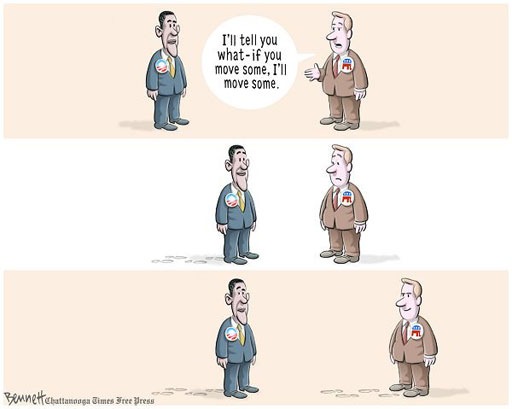Mitt Romneys trust invested in Cnooc at a time when the US was growing concerned about the Chinese oil companys multibillion-dollar dealings with Tehran, according to the 2011 tax return released by the Republican nominee for president. The Chinese investment by Mr Romneys blind trust prompted accusations of hypocrisy from the Obama campaign on Monday, given Mr Romneys criticism of Barack Obama for not being tough enough on Chinese cheaters.
As he rolls his bus through many Ohio towns that are benefiting from [Obamas] actions to . . . protect American workers from unfair Chinese trade practices, Mitt Romney will, as they say, have some explaining to do, said an Obama campaign spokesman. But Mr Romneys investment in Cnooc also raises questions about his tough stance against Iran and is further evidence of how the former Bain Capital chief executives vast global share holdings have posed a challenge to his bid for the White House. Last month, Cnooc Limiteds chairman, Wang Yilin, said in a speech that the companys large-scale deep water rights were a mobile national territory and a strategic weapon, a description that highlights the political sensitivity surrounding the company.
Mr Romney has repeatedly said he had no control over the decisions by the blind trust that held the investments, which are controlled by a trustee named R. Bradford Malt.
The trustee of the blind trust has said publicly that he will endeavour to make the investments in the blind trust conform to Governor Romneys positions, and whenever it comes to his attention that there is something inconsistent, he ends the investment, said Michele Davis, an aide to the Romney campaign and former Treasury official in George W. Bushs administration.
Mr Romney has in the past specifically in his Senate run against Edward Kennedy called blind trusts an age-old ruse because you can always tell a blind trust what it can and cannot do.
The first investment by Mr Romneys trust in Cnooc Limited, in October of 2009, was made about seven months after the groups state-owned parent company was widely reported to have signed a deal with Iran to develop the huge North Pars gasfield for an LNG export project.
In the US, the deal was viewed as part of a worrying effort by China to secure energy interests. According to a report by the International Gas Report in February of 2009, Beijing gave Cnooc the green light to sign a deal with Tehran immediately after the US agreed to sell arms to Taiwan. The agreement, which was on and off for years before the deal was signed, even prompted interest from the US State Department in 2007, which examined whether it violated the Iran-Libya Sanctions Act. Washingtons unease with Cnooc was also apparent in the political uproar in 2009 over the Obama administrations decision to appoint Chas Freeman as the head of the National Intelligence Council. The choice of Mr Freeman, a former ambassador to Saudi Arabia and envoy to China, was eventually nixed. But one of several issues raised by both Democratic and Republican lawmakers on Capitol Hill was Mr Freemans links to Cnooc, after he joined the board of international advisers in 2004.
Tax records released last week showed that Mr Romneys blind trust made two subsequent investments in Cnooc and then sold all the shares for a profit of about $11,000, in August of 2011.
That was about the same period when Mr Romney began ratcheting up his campaign rhetoric against China. Since then, Cnoocs involvement in the North Pars project has also reportedly been put on hold. Citing analysts, a July report by Platts found that the Chinese projects have not moved forward in Tehran because the overall investment climate in Iran was unfavourable.
Cnooc is awaiting approval by the US for its $15bn takeover of Nexen, an oil group based in Calgary with interests in the Gulf of Mexico. The deal requires approval by the Committee on Foreign Investments in the US, which vets cross-border deals on national security grounds. An earlier attempt by Cnooc to take over California-based Unocal in 2005 was scrapped after the transaction was attacked on Capitol Hill. So far, the takeover of Nexen has not garnered similar opposition, although Mr Romneys tax records has put a new spotlight on Cnooc.
Erica Downs, a fellow at the Brookings Institute, said that if the Nexen deal were approved, it would represent the first time a Chinese company was given an operating role at an energy company in the US.
Two Cfius experts who are not involved in the review of the deal but asked not to be identified given the sensitivity surrounding the issue said that they suspected the US departments that vet the deal would likely seek more information and assurances from Cnooc about its status in Tehran as part of their review of the deal. The transaction will ultimately fall to Mr Obamas political appointees in the departments of Defence, the Treasury and other agencies who will review the deal.




